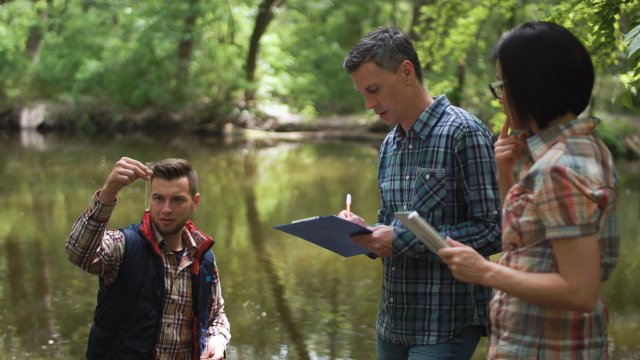New EPA Citizen Science Quality Assurance Handbook Provides Best Practices for Citizen Science Projects
Published March 26, 2019

Citizen science is one way that Americans engage in environmental science. The public participates voluntarily in the scientific process, addressing real-world problems in ways that may include formulating research questions, conducting scientific experiments, collecting and analyzing data, interpreting results, making new discoveries, developing technologies and applications, and solving complex problems. One major challenge is data quality - to make sure the data being collected meets the project needs. Sound science and decision-making start with high-quality data.
EPA supports the use of citizen science to strengthen and inform environmental decision making. To further the Agency’s vision and strategy for citizen science, EPA has created a new Quality Assurance handbook, to be used with accompanying templates and examples for citizen science. These documents provide best practices for citizen science organizations on how to document quality assurance for citizen science projects. The handbook, templates, and examples are designed for organizations and people who want to collect quality data that can be used for different purposes.
The handbook explains the purpose of each of the templates. The templates provide instructions, tables, and questions that provide a platform that may be filled in or responded to, and the examples can be used to see specific examples of quality assurance documentation. Together, these documents will help citizen scientists and organizations complete a Quality Assurance Project Plan and provide information for data users to evaluate the quality of data collected by citizen scientists.
Improving quality assurance practices in citizen science projects can increase the usefulness of data collected by volunteers. EPA’s new handbook recognizes the different uses of citizen science data and encourages the appropriate level of quality assurance.
Over the next year, EPA will work with states, tribes, and other partners to build capacity in quality assurance for citizen science.
*Please note that all EPA funded projects require a Quality Assurance Project Plan (QAPP), and these are the only QAPPs that EPA has the capacity to review. While EPA encourages citizen scientists to develop QAPPs using our handbook as guidance, we will not be reviewing citizen science QAPPs unless they are funded through EPA.
Learn more:
